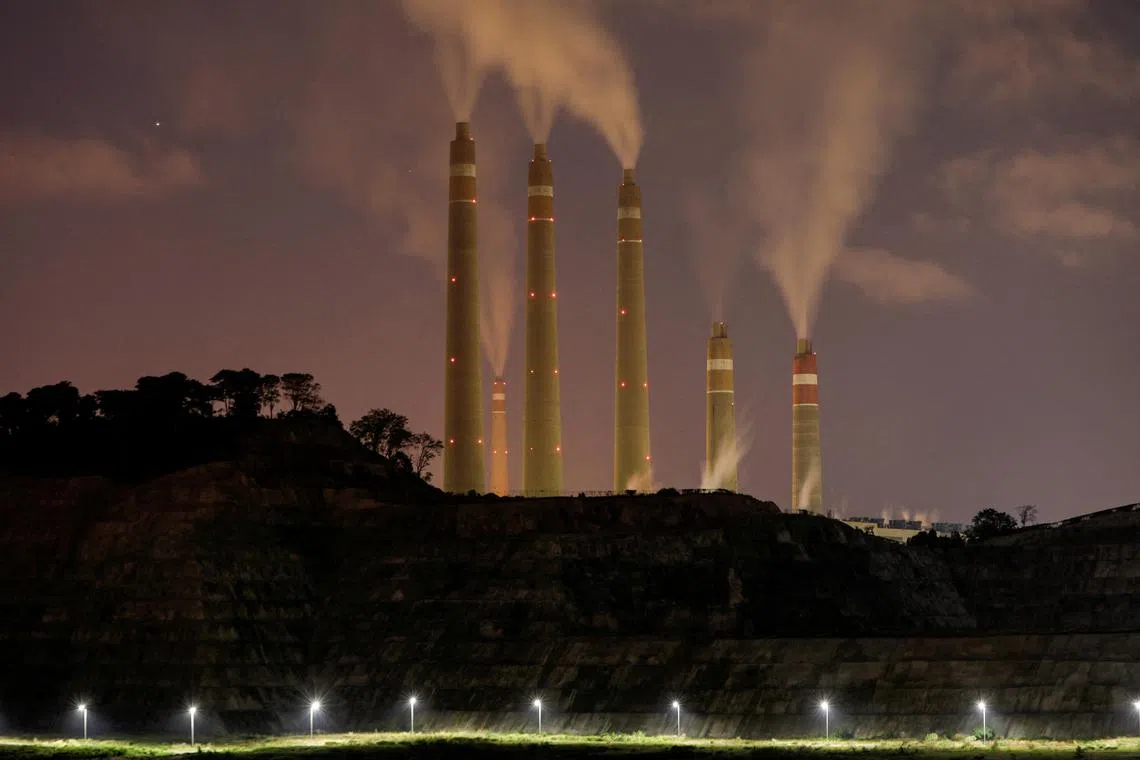Indonesia coal-fired power plant to be retired early under pilot ADB scheme
Sign up now: Get insights on Asia's fast-moving developments

Early closure of the plant in Java could prevent about 15 million tonnes of greenhouse pollution from being emitted.
PHOTO: REUTERS
DUBAI – A large coal-fired power plant in Indonesia is set to be retired seven years early, after a provisional agreement between the Indonesian government, Asian Development Bank (ADB) and the plant’s owners.
Early closure of the plant in Java could prevent about 15 million tonnes of greenhouse pollution from being emitted, said Mr David Elzinga, ADB’s senior climate change energy specialist.
The agreement is the first of its kind under ADB’s Energy Transition Mechanism (ETM),
The pilot deal was announced on Dec 3 on the sidelines of the United Nations COP28 climate talks in Dubai.
Under the non-binding agreement, the 660-megawatt Cirebon-1 power plant – a key supplier to the capital Jakarta – would be shuttered by 2035 instead of 2042.
Achieving this involves refinancing the project at a lower overall cost of capital totalling between US$250 million (S$333.5 million) and US$300 million, Mr Elzinga said.
He likened it to lowering the cost of finance for a mortgage, allowing owners to pay off the house faster. The deal also provides a provision for loss of revenue due to early closure.
ADB and its partners in the ETM would lower the cost of capital using market-based and concessional funds, he said.
The deal was signed by the bank, independent power producer PT Cirebon Electric Power, Indonesian state-owned power utility PT PLN, and the Indonesia Investment Authority.
The power plant, which started operating in 2012, has a 30-year power-purchase agreement that will now end in 2035.
Mr Elzinga said the deal was subject to completion of environmental, social and financial due diligence and the transaction is expected to be finalised in the first half of 2024.
One of the key conditions is that the owner, PT Cirebon Electric Power, does not use the money from the refinancing to invest in new coal projects.
In addition, the Cirebon 1 plant must either be decommissioned or repurposed. If repurposed for power generation, it can generate only renewable energy or low-carbon power such as green ammonia, Mr Elzinga said.
Governments and financial institutions in Asia and elsewhere are increasingly focused on ways to finance the early closure of coal power plants because burning coal is the single-largest source of carbon emissions heating up the planet. Smoke from coal plants is also a major cause of deadly air pollution.
Asia is a particular focus of early coal phase-out schemes because much of the region’s power is generated from coal and many plants are still relatively new, requiring significant amounts of money to pay off loans and long-term power purchase agreements.
Mr Elzinga said coal plants need to be shut down early because of the climate risks. But it has to be done in a way that does not disrupt power supplies, encourages the shift towards renewables, and makes commercial sense for the plant owners.
The deal with Cirebon 1, first outlined a year ago at COP27 in Egypt, has progressed during 2023 after discussions among all the parties.
Mr Elzinga said it has been a learning process for everyone.
“Let’s just say we want to accelerate the transition from coal to clean energy. We don’t have any tools to do that,” he told The Straits Times, adding that the pilot deal was a starting point to build upon.
Future deals will each be different, and every nation will be different, he said. “There are going to be significant lessons to be learnt.”



